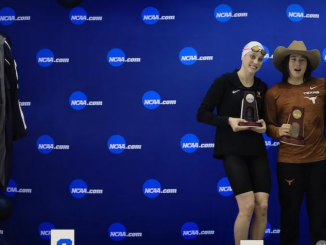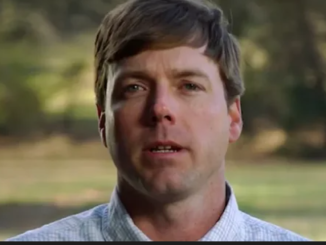
This is an opinion column.
It was the dress for her. Or him—back then.
E’ona Duncan Boyd was 13 years old when he took a girl to the middle-school prom in Fairfield. Five years later, Boyd still remembers the dress she wore. Less for what it looked like than for how it made Boyd feel.
“I saw it and was like, I want that dress,” Boyd recalls. “I bought it [after the prom] and when I tried it on, I was like, Oh, wow, this actually looks beautiful on me.”
Wearing that dress, seeing himself in that dress, being confirmed what Boyd long felt. Long knew.
That she identified as female.
More on the Alabama trans bills:
Alabama bill outlawing transgender therapies for minors wins committee vote
Alabama ban on puberty blockers, hormones for minors with gender dysphoria advances
Alabama House passes bill restricting bathroom access for transgender students
Alabama GOP love playing doctor with trans kids
“I was never a masculine boy; I was always feminine,” she says. “I never looked masculine; I always looked feminine. I never hung out with the boys, and I didn’t fit in with the boys. I always fit in with the females.”
She knew, still knows.
Knows more than our state lawmakers know or stubbornly want to know about being transgender. About knowing, sometimes at a very young age.
Very soon, a physician in this state who prescribes hormones or medications that aid transgender youth—transgender youth who know—in their gender transition, or who performs transitional surgery on anyone under 19 would be committing a felony. They could go to prison, for up to 10 years, even if the youth knows, even if they’re supported by their parents, by their family.
Sen. Shay Shelnutt, R-Trussville is the architect of a bill—an ill-informed bill, according to most medical experts. A bill claiming to “protect” minors yet offering no credible data showing they need to be protected. Except from people like Shelnutt and lawmakers who roll with him.
The bill that could soon receive final passage by the Alabama House and head to Gov. Kay Ivey’s desk to would become a law that spits in the faces of young people like Boyd. Young people who know.
“[The bill] makes me mad,” Boyd says. “I don’t think that’s fair at all. You can’t put an age on when somebody can or can’t transition, especially if the system’s doctor supports that person’s transition and they understand what they’re going through.
“[Alabama lawmakers] want to want to lock [doctors] away for understanding instead of trying to help [young people] be the person they truly want to be,” she says. “That’s not fair. That’s like, that’s like locking up a baby for wanting to be a baby. You can’t do that. It makes no sense.”
Although she knew, Boyd could not share it with her parents, not initially.
She wanted to tell them but was scared. Scared because they often told homophobic jokes in Boyd’s presence. “That pushed me away from telling them,” she says. “So, I would always tell my friends or people I call my parents.”
Among those “parents” were aunties (we’ve all got ‘em). They gave Boyd some of their own hormones. Gave her estrogen. Gave her spironolactone, which combats hirsutism—hair growth where women don’t want hair.
Then Boyd, still a young teen, began to get her hair done, began donning more feminine attire.
As she tiptoed towards transition, Boyd’s sister became upset too. Among the family’s children, she was the only girl. Until Boyd knew.
“She felt like I tried to take her spot,” Boyd says. “When I started to want to transition, it kind of tore something between me and her.”
Boyd, at about 16 years old, began to see a physician through a facility under the guidance of the state’s Department of Human Resources. Began to receive counseling.
“They wanted to make sure this is something that I actually wanted to do,” she says, “not just something somebody was telling me to do.”
Not everyone knows, of course. Not every teenager—trans or not—knows what they will want, or whom they may want to be, when they are adults.
That’s what Shelnutt and his ilk are betting on, in this no-lottery state. They’re betting on the few who may change their minds about transitioning instead of respecting those who know.
Boyd knows a young teen who didn’t quite know. They lived in the same DHR-managed facility.
“Me and her, we were close,” she says. “We were like sisters, because she was transgender, and I was transgender. But there were times when she didn’t know if she wanted to be a boy or girl. She was always more masculine. She tried on some [clothes] and they wouldn’t fit as well as they would for me. So she would feel like, ‘Oh, well, I still got muscles and facial hair; I should just be a boy.’
“She was saying, what if she transitions and then doesn’t like the outcome.
“I just told her: First, before you do anything, make sure it’s actually what you want to do because even though you recognize what you want to do at an early age, you still need to take a while to actually understand what you’re going to do with your body. Because once you do that with your body, you can’t go back. There’s no restarts or resets.”
I can see Shelnutt now—reading this and high-tailing it around the state Senate floor shouting, See, see, I told you…
What he doesn’t see, though, is that Boyd’s words, his counsel, demonstrate this now 18-year-old knows more about this than the state lawmaker. She knows numerous systems already exist—systems formal and informal—that protect young people far more than this bill does.
Hypocritical Alabama Republican leaders scream overreach whenever President Biden dares send an email to our state, yet themselves reach—into a woman’s uterus, into public school classrooms and bathrooms, and with this bill, into a doctor’s office and into decisions a patient and their family should be given the freedom (Republicans say that word a lot, too) to discern.
“There’s more of us nowadays,” Boyd says, “actually coming out and recognizing, understanding what they want to do and what they want to be at an early age.”
The soon-to-be-law says our state feels a bunch of folks in Montgomery knows more than the people who know.
“How do you do that?” Boyd asks me, rhetorically. “Just because some people may or may not want to [transition] doesn’t mean you can force your opinion and make that decision for them. Because that’s what they’re doing. They’re deciding to put a hold on somebody’s transition at an early age when [that person] can actually figure out and understand what they want to do.”
When that person knows. Knows more than some of our lawmakers.
*story by al.com


